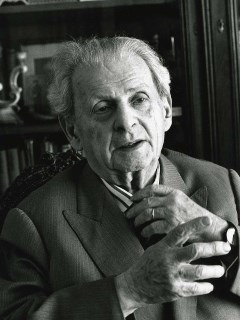
Publication details
Publisher: Nakladatelství Karolinum
Place: Prague
Year: 2011
Pages: 113-124
Series: AUC Interpretationes
Full citation:
, "Le "surplus" – de la corporéité au langage de l’éthique dans l’héritage lévinassien de la phénoménologie", AUC Interpretationes 1 (1), 2011, pp. 113-124.


Le "surplus" – de la corporéité au langage de l’éthique dans l’héritage lévinassien de la phénoménologie
pp. 113-124
in: AUC Interpretationes 1 (1), 2011.Abstract
The conception of the “transcendence in the immanent”, proposed by Husserl in Ideas I, suggests the impossibility of total reflection. On the one hand, the originality of Levinas’ contribution to the field consists in treating this impossibility positively as a “surplus”, which allows him to introduce his own proper term “home” and to avoid the isolation of subjectivity from the world as well as its absorption. On the other hand, corporeity is for Levinas closely associated with “indigence”, “nakedness” and “hunger”. The surplus as a language emerges in this corporeity as the moral accusation against the proper power of subjectivity. However, the notion of “house” implies the coexistence of absolute and non-absolute exteriority, which leads us to the paradox of a “cracked monad”. Taken seriously, exteriority reveals itself as a “trace” and the language is supposed to be the “witness” in the “prophecy”. The witness is a kind of connection, which refers to something that a subject can never deal with: it is nothing else but the language expressing the surplus. And thus Levinas, rejecting Heidegger’s interpretation of the witness being attached to “certainty”, applies the term “religion” to affirm the value perceived through the responsibility only.
Cited authors
Publication details
Publisher: Nakladatelství Karolinum
Place: Prague
Year: 2011
Pages: 113-124
Series: AUC Interpretationes
Full citation:
, "Le "surplus" – de la corporéité au langage de l’éthique dans l’héritage lévinassien de la phénoménologie", AUC Interpretationes 1 (1), 2011, pp. 113-124.

